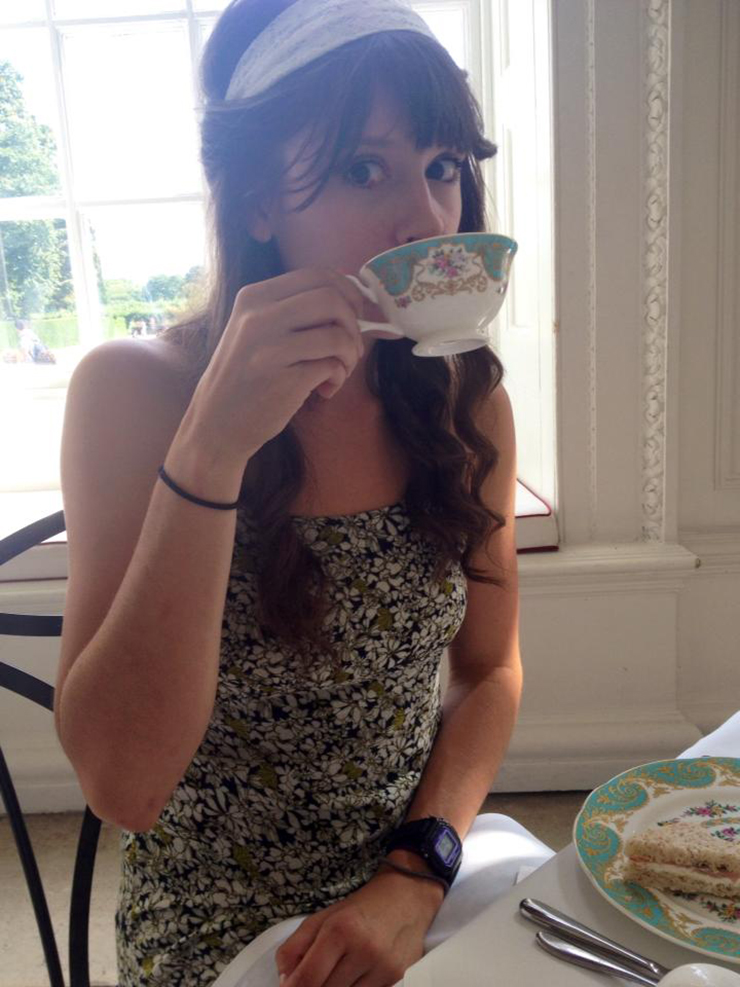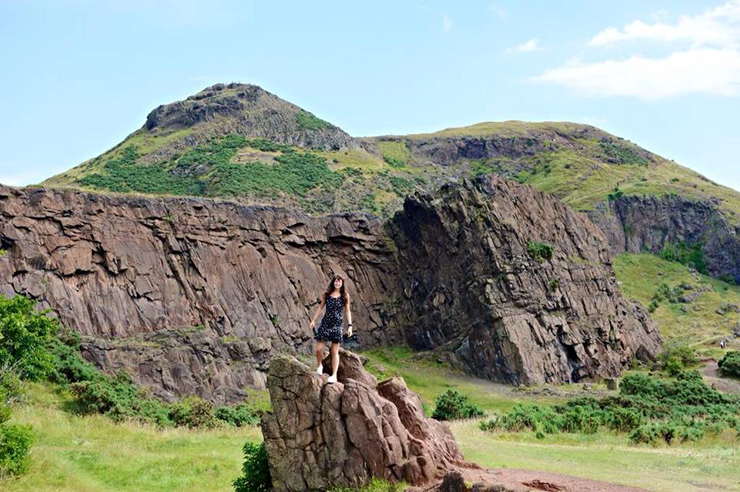 |
| High Tea at Kensington Palace |
Article courtesy of Kristen Coppola, originally published on the Honors College blog in December 2014
I studied abroad in England through the Medieval England program, headed by Dr. Quinn of the English and Medieval and Renaissance Studies program. The program was based out of the University of Durham, where we attended daily lectures on medieval literature, art, architecture and religion. The lectures were excellent preparation for the many day trips to interesting places such as York, Lindisfarne, Winchester and Dover.
While in York, I had a chance to see the York Minster, a famous Gothic cathedral, and the York Mystery plays, a centuries-old tradition still upheld by the townspeople of York. Stories from the Bible are enacted with elegant verse throughout the city. The plays were a fusion of contemporary interpretation and medieval tradition. I didn’t expect to enjoy medieval morality plays so much, but the people of York brought the stories to life.
The Holy Isle of Lindisfarne was the original resting place of St. Cuthbert, before his body was carried to Durham and buried at the cathedral. Lindisfarne is inaccessible for most of the day when high tides cover the only road to the island. There is a quaint village surrounded by chilly pebble beaches and pastures of sheep. The ruins of a 14th century abbey sit on a small grassy outcrop pointing to the sea. The lectures on architecture and religion made exploring the abbey ruins so interesting and brought new meaning to lessons learned in the classroom.
 |
| At Rievaulx Abbey, Yorkshire |
I wish I had known how expensive everything is! The food, while not as bad as I had been warned it would be, is still very expensive. London in particular is notorious for its overpriced food. I minimized my costs by buying bread and Nutella for sandwiches and saving up for nicer meals on the weekends. At the end of my trip I splurged and got high tea at Kensington Palace. For 25 pounds [ed. note: about $35], you get three finger sandwiches, two scones, and five tea cakes with clotted cream. It was delicious.
 |
| Climbing Arthur’s Seat in Edinburgh, Scotland |
Study abroad was great because being able to interact meaningfully with classroom knowledge in a real world setting makes education all the more real, and all the more applicable. It fleshes out many of the things I already knew, and exposed me to many things I have yet to learn.
--
For the full article and to read more about international
travel through the Honors College, please visit the HonorsCollege blog.
Learn more about studying abroad with the Medieval & Renaissance Studies department at: http://mrst.uark.edu/8560.php
